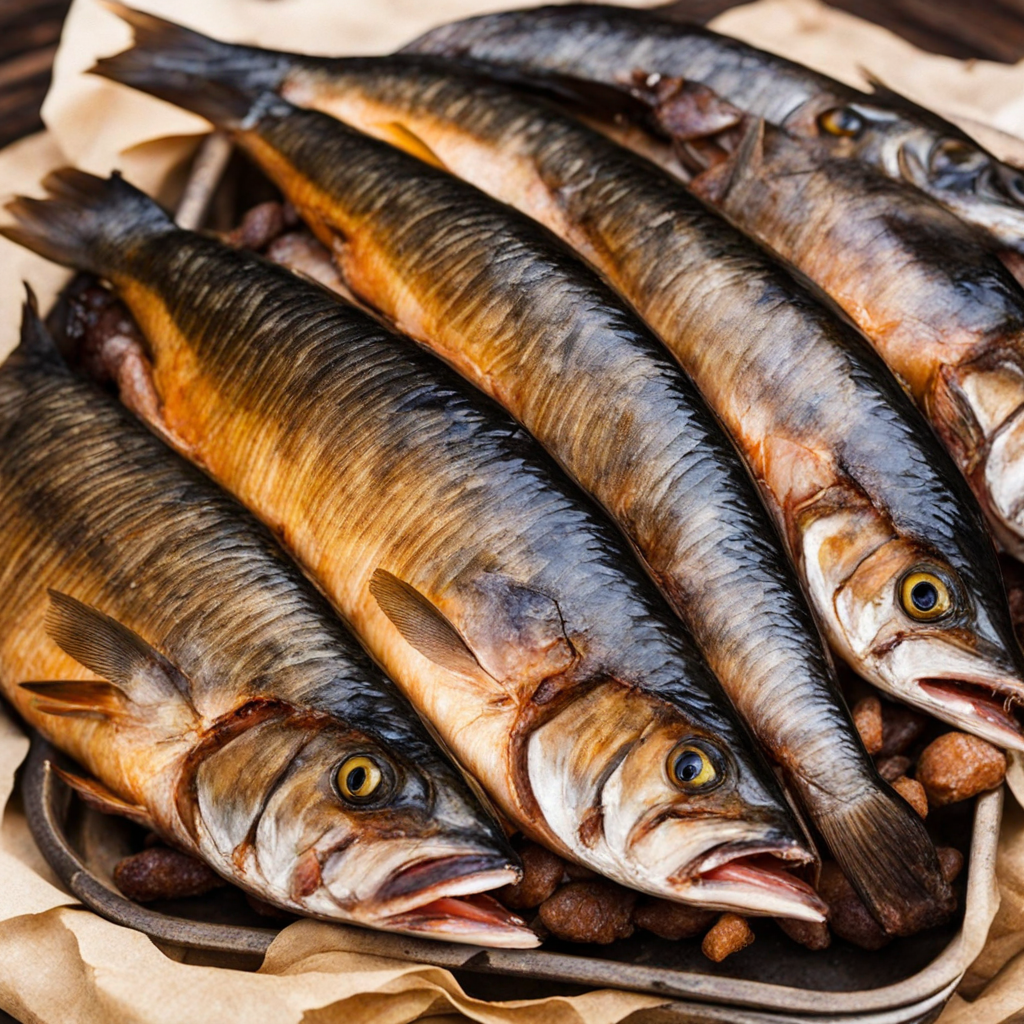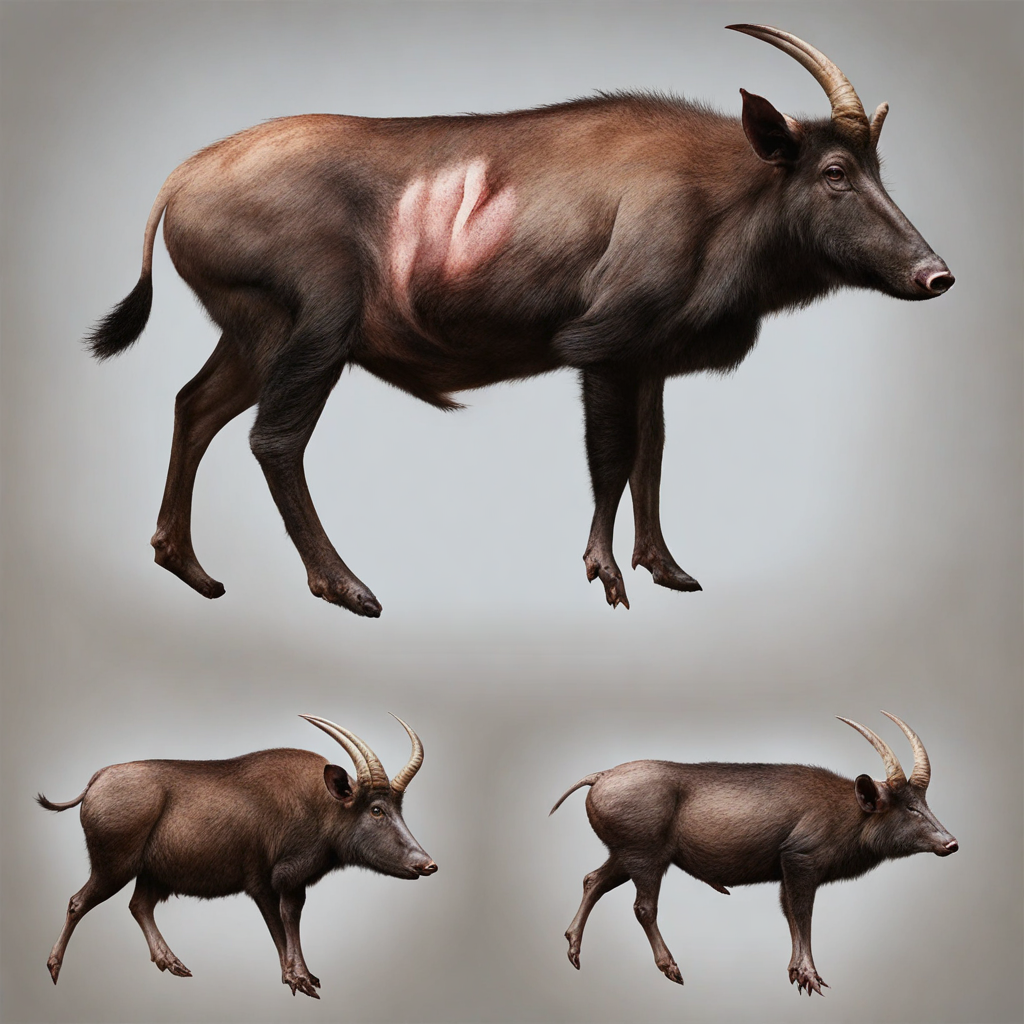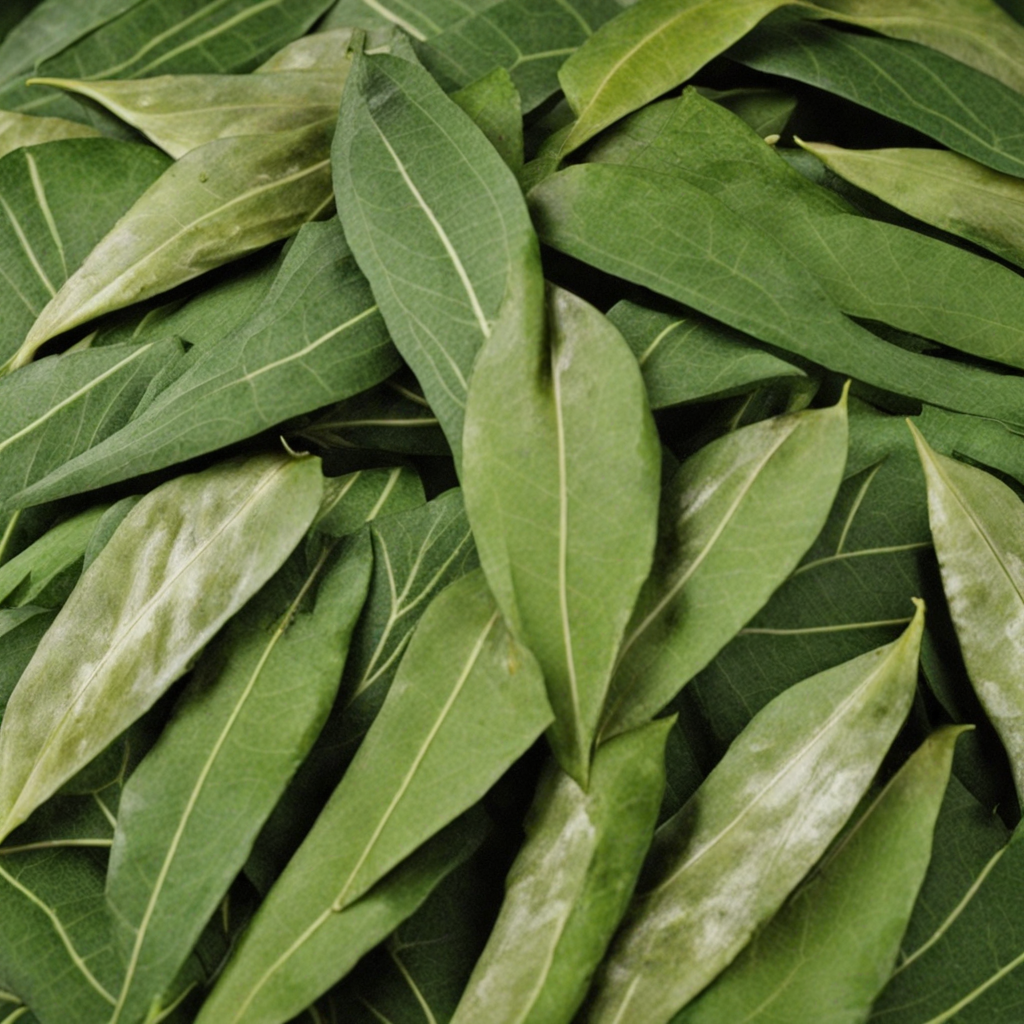Smoked Fish
Smoked fish from Gabon is a culinary delight that showcases the rich flavors of the region's freshwater and coastal fish. The traditional smoking process not only preserves the fish but also imbues it with a distinct, smoky aroma that elevates its natural taste. Typically, local varieties such as tilapia or catfish are used, seasoned with a blend of spices that may include garlic, chili, and local herbs. The result is a tender, flaky texture that offers a perfect balance between the umami of the fish and the deep, aromatic notes from the smoking process. In Gabon, smoked fish is often enjoyed as a key ingredient in various dishes. It can be served on its own, accompanied by a side of traditional cassava or plantains, allowing the flavors to shine through. Alternatively, it is incorporated into soups and stews, where it adds depth and complexity to the dish. This versatility makes smoked fish a beloved staple in Gabonese cuisine, often featured in family gatherings and communal meals, where sharing food is an integral part of the culture. The experience of savoring Gabonese smoked fish is not just about taste; it is also a journey into the country's culinary heritage. The smoking technique is often passed down through generations, with each family having their unique method and secret spice mix. Enjoying this dish gives you a glimpse into the traditions and flavors of Gabon, making it a must-try for anyone looking to expand their palate and discover the heart of Gabonese gastronomy.
How It Became This Dish
Poisson Fumé: A Historical Journey through Gabonese Culinary Heritage Origins of Poisson Fumé Poisson Fumé, or smoked fish, holds a cherished place in the culinary landscape of Gabon, a nation situated along the Atlantic coast of Central Africa. The origins of this dish can be traced back to the indigenous communities that have inhabited the region for centuries. Fishing has long been an integral part of Gabonese culture, thanks to the bountiful waters of the Atlantic Ocean and the numerous rivers that snake through the country's lush landscapes. The rivers, such as the Ogowe and the Nyanga, provide a rich habitat for various fish species, making them vital for both sustenance and trade. The practice of smoking fish is believed to have emerged as a preservation technique, essential for communities living in a tropical climate where refrigeration was nonexistent. The method not only extended the shelf life of the fish but also infused it with a distinct flavor that would become a hallmark of Gabonese cuisine. Various indigenous groups, including the Fang and the Tsogo, developed their unique processes for smoking fish, often using wood from local trees such as mango, oak, or mahogany to impart different tastes. Cultural Significance Poisson Fumé is more than just a dish; it is a symbol of Gabonese identity and cultural heritage. The act of fishing and preparing smoked fish has been woven into the social fabric of Gabonese life, often serving as a communal activity that strengthens family and community bonds. Fishing expeditions are typically shared experiences, with families and friends coming together to catch fish, smoke them, and share stories. Moreover, Poisson Fumé plays a significant role in traditional ceremonies and celebrations. It is often served during important festivals, weddings, and rites of passage, reflecting the dish's cultural importance. The method of preparation may vary depending on the occasion, with some families opting for elaborate recipes that include spices, marinades, or accompaniments, while others may adhere to simpler, more traditional practices. The dish also holds economic significance. The fishing industry in Gabon provides livelihoods for many, and Poisson Fumé is often sold in local markets, offering a source of income for fishermen and their families. The smoked fish is not only a staple in local diets but has also gained popularity in urban areas and among expatriates seeking to experience authentic Gabonese cuisine. Development Over Time As Gabon modernized throughout the 20th and 21st centuries, the preparation and consumption of Poisson Fumé evolved while still retaining its traditional roots. The introduction of new technologies and methods has influenced the way fish is smoked. While traditional methods remain prevalent, some fishmongers have adopted electric smokers, allowing for greater efficiency and consistency in the smoking process. This shift has made Poisson Fumé more accessible to a broader audience, catering to both traditionalists and newcomers alike. The globalization of food culture has also impacted the perception and popularity of Poisson Fumé. As Gabon’s culinary landscape intersects with international cuisine, smoked fish has found its way into various fusion dishes. Chefs in urban centers like Libreville experiment with Poisson Fumé, incorporating it into contemporary dishes that blend traditional flavors with global influences. This has led to a renaissance of sorts in Gabonese cuisine, where Poisson Fumé is celebrated not only as a traditional dish but also as a versatile ingredient that can be adapted to suit modern palates. The rise of tourism in Gabon has further propelled the popularity of Poisson Fumé. Travelers seeking to experience the country's rich culinary heritage often seek out local markets and restaurants where they can sample this iconic dish. Food festivals and cultural events highlight Poisson Fumé, showcasing its role in Gabonese culture and inviting visitors to partake in its preparation and consumption. Challenges and Sustainability Despite its esteemed status, the practice of fishing in Gabon faces several challenges. Overfishing and environmental degradation threaten fish populations, which could jeopardize the traditional ways of life for many communities dependent on fishing. Consequently, there has been a growing awareness of the need for sustainable fishing practices. Local organizations and initiatives are working to promote responsible fishing methods, ensuring that future generations can continue to enjoy Poisson Fumé. Furthermore, climate change poses additional risks to the fishing industry. Changes in sea temperatures and weather patterns can affect fish migration and breeding, potentially leading to shortages that impact both the availability and price of Poisson Fumé. In response, some communities are beginning to diversify their food sources, including farming and aquaculture, to mitigate these risks while maintaining their culinary traditions. Conclusion Poisson Fumé stands as a testament to Gabon's rich cultural heritage and the resilience of its people. From its origins as a vital preservation method to its role as a symbol of community and celebration, this dish encapsulates the essence of Gabonese life. As it continues to evolve and adapt in the face of modern challenges, Poisson Fumé remains a beloved staple that connects the past with the present, bridging generations and uniting communities. As Gabon seeks to balance tradition with modernity, Poisson Fumé will undoubtedly remain at the heart of its culinary identity, a delicious reminder of the country’s vibrant history and the enduring bond between its people and their land. Whether enjoyed in a bustling market or at a family gathering, Poisson Fumé is a dish that tells the story of Gabon—its history, culture, and the spirit of its people, all wrapped in the smoky embrace of its flavors.
You may like
Discover local flavors from Gabon







